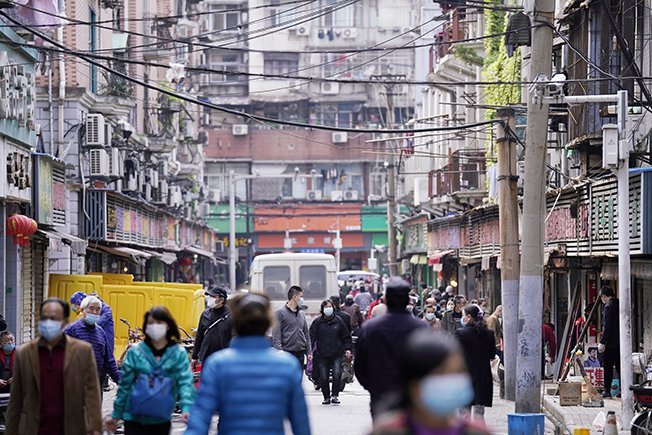Chinese authorities on Wednesday imposed travel restrictions and banned gatherings in the capital city of Hebei province, which surrounds Beijing, in the latest escalation of measures to stave off another coronavirus wave.
The province, which entered a “wartime mode” on Tuesday, accounted for 20 of the 23 new locally transmitted COVID-19 cases reported in mainland China on Jan. 5, more than the total of 19 cases in the province in the three previous days.
Hebei also accounted for 43 of 64 new asymptomatic cases – people infected with the SARS-CoV-2 virus but not yet showing symptoms of COVID-19.
Hebei’s capital, Shijiazhuang, a city of 11 million that reported 19 confirmed and 41 asymptomatic cases, ramped up countermeasures. It will require all travellers to present a negative nucleic acid COVID-19 test within the past 72 hours before boarding a train or an airplane, the Shijiazhuang Zhengding International Airport said on Wednesday.
The city has also launched a mass testing drive, shut its main long-range bus terminal, banned gatherings and ordered residential compounds to keep out non-residents. The head of China’s National Health Commission led a team to the city on Tuesday, the official Xinhua news agency said on Tuesday.
The total number of new mainland cases, including those originating from overseas, fell to 32 from 33 a day earlier – a small fraction of what China saw at the height of the outbreak that emerged from the central city of Wuhan in late 2019. The country does not count asymptomatic patients as confirmed COVID-19 cases.
China continues to take aggressive measures to prevent another wave of the disease that has killed 4,634 people in China and nearly 1.9 million globally.
Authorities in Dalian, in Liaoning province where new local COVID-19 infections have been reported in recent days, also barred residents of areas designated medium or high-risk for the disease from leaving the city. Residents who do not live in such areas were told to refrain from unnecessary trips out of Dalian.
Provincial and city governments frequently implement a combination of measures including mass testing, closing schools and restricting travel for those in areas with new patient clusters. Chinese customs officials also conduct routine inspections of imported goods to check for traces of the coronavirus.
At the same time, China has tried to reshape the narrative about when and where the pandemic began, with top officials highlighting studies they claim show the disease emerged in multiple regions. Beijing has also rejected accusations of wrongdoing or mishandling of the COVID-19 outbreak in the country.
The head of the World Health Organization on Tuesday said he was “very disappointed” that China still had not authorised a team of international experts tasked with examining the origins of the coronavirus into the country.
The 10-person team was due to set off in early January in order to probe early cases of the coronavirus.
Chinese foreign ministry spokeswoman Hua Chunying said the problem was not only over visas, and that the two sides were still in talks about dates and arrangements for the visit.
“There’s no need to overinterpret this,” she said, adding that China’s experts were also busy dealing with a renewed spurt of infections, with many locations entering a “wartime footing”.







Click here to change your cookie preferences